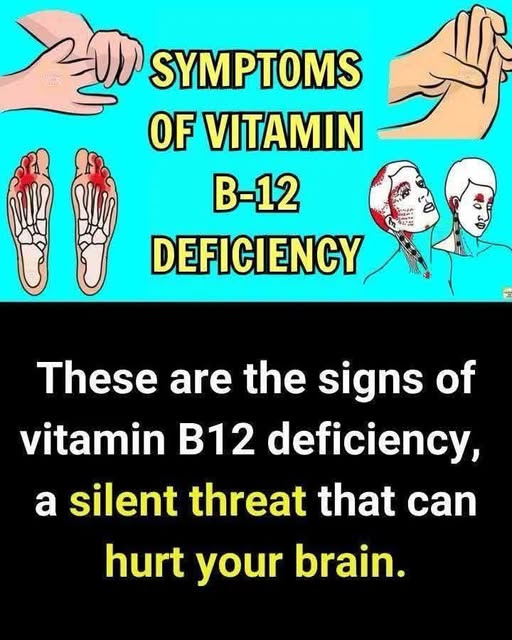Signs Of Vitamin B12 Deficiency You Should Never Ignore
Feeling drained, unmotivated, or forgetful? These might be more than just a bad day—they could signal a vitamin B12 deficiency. Vitamin B12 is crucial for your body’s energy production and overall health, but many of its deficiency symptoms are often overlooked. From tingling sensations to mood changes, understanding the warning signs is the first step toward better health.
What Are the Symptoms of Vitamin B12 Deficiency?
A vitamin B12 deficiency can manifest in several ways, and the symptoms aren’t always obvious. Common signs include fatigue, brain fog, and low mood, but it can also cause physical and neurological issues such as:
-
Tingling or numbness in the hands, feet, or legs
-
Difficulty walking or balance problems
-
A swollen or inflamed tongue
-
Jaundiced skin
-
Paranoia or hallucinations
-
Weakness or anemia
Because B12 plays a vital role in nerve function and red blood cell production, these symptoms shouldn’t be ignored.
Why Is Vitamin B12 So Essential?
Vitamin B12 is a nutrient the body can’t produce on its own, meaning you must obtain it from food or supplements. It’s especially important for energy production, red blood cell formation, and neurological health. Studies suggest that nearly 40% of North Americans are deficient in this essential vitamin, with rates even higher among those with conditions like Chronic Fatigue Syndrome or Fibromyalgia.
Testing for B12 Deficiency
Determining if you have a B12 deficiency isn’t always straightforward. While serum B12 tests are commonly used, they don’t measure how well your body is utilizing the vitamin. For a more accurate diagnosis, ask your doctor about an Intracellular B12 test. If that’s unavailable, tests for Methylmalonic Acid (MMA) and Homocysteine levels can offer additional insights.
Pernicious Anemia
This autoimmune condition damages stomach cells responsible for producing intrinsic factor, a protein needed for B12 absorption. Without intrinsic factor, your body struggles to absorb B12 from food, leading to a deficiency.
Leaky Gut Syndrome
Conditions that disrupt the gut lining, such as gluten sensitivity, bacterial infections, or excessive sugar intake, can impair your ability to absorb nutrients, including B12. Addressing gut health through dietary changes can significantly improve absorption.
Poor Gut Microbiome
An imbalance of gut bacteria can interfere with nutrient absorption. To maintain a healthy microbiome, reduce sugar intake and increase probiotic-rich foods like yogurt, sauerkraut, and kefir.
Medications for Heartburn
CONTINUE READING ON THE NEXT PAGE 🥰💕

